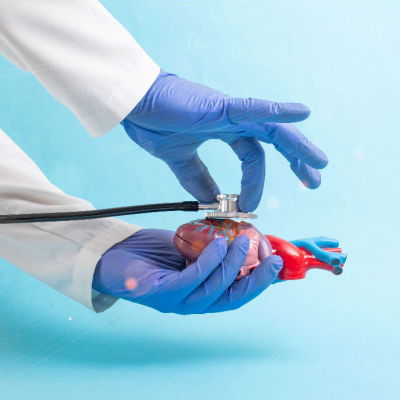Heart Rhythm Conditions
Heart rhythm conditions are often a sign of an underlying issue, and may even pose problems in themselves. So what are some of the most common heart rhythm conditions?
Atrial Fibrillation
Atrial fibrillation (AF) occurs when the atria, or upper chambers of the heart, begin to beat out of sync with the ventricles, or lower chambers of the heart. Characterized by a rapid rhythm, AF reduces the heart’s effectiveness at pumping blood. As a result, blood clots can form in the heart chambers, potentially reaching the brain and causing a stroke or heart failure.
AF is typically due to an existing heart condition. Other causes include high blood pressure, heart attack and coronary artery disease. Dizziness, feeling out of breath, tiredness, a feeling that the heart is racing or fluttering, uneven heartbeat, and chest pain are all common symptoms.
Atrial fibrillation is common in older adults and may not present obvious symptoms. Seeing a doctor at the first onset of AF symptoms is important to avoid serious complications. The typical goals of treatment are restoring rhythm to as close to normal as possible and preventing the formation of blood clots.

Arrhythmia
Arrhythmia is a problem with the rhythm of the heartbeat-beating too fast, too slow, or with an irregular rhythm. Many arrhythmias are harmless, but some can be life-threatening, especially since a lack of blood flow to the body can damage the brain, heart and other organs.
Noticeable symptoms of arrhythmia include fainting, dizziness, heart palpitations, weakness, fatigue, shortness of breath and chest pain. Arrhythmia can be caused by heart disease, stress, smoking, heavy alcohol use and certain medications.
Treatment for arrhythmias depends on the type and severity of irregular heart rhythm. In most cases, people with arrhythmias can live normal, healthy lives, but never take the risk of a ‘wait-and-see’ approach.
Remember, anything other than your usual, steady heartbeat could be a sign of a dangerous heart condition. Always discuss irregular heartbeat symptoms with your cardiologist.


